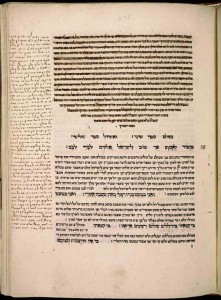 Save the date. The Department of English and Linguistics and the Centre for the Book are pleased to welcome Prof. Bill Sherman, Director of Research and Collections, Victoria & Albert Museum, London to deliver this year’s Margaret Dalziel Lecture at 5:30 pm on Tuesday 20 September. More details will be posted once room and lecture title are confirmed.
Save the date. The Department of English and Linguistics and the Centre for the Book are pleased to welcome Prof. Bill Sherman, Director of Research and Collections, Victoria & Albert Museum, London to deliver this year’s Margaret Dalziel Lecture at 5:30 pm on Tuesday 20 September. More details will be posted once room and lecture title are confirmed.
Bill Sherman is Head of Research at the Victoria & Albert Museum and Professor of Renaissance Studies at the University of York. He was Director of the Centre for Renaissance & Early Modern Studies (CREMS) from its creation in 2005 to 2011, and Associate Editor of Shakespeare Quarterly from 2001 to 2012. He has held visiting positions at Caltech, Queen Mary (University of London) and Keio University (Tokyo), and fellowships at the Folger, Huntington, New York Public Library, National Maritime Museum and Bard Graduate Center. He has received grants from the NEH, AHRC, Mellon Foundation and Bibliographical Society and has served on a range of boards, trusts and councils on both sides of the Atlantic.
Sherman’s research is driven by a love of archives and other collections, and an interest in how objects from the past (textual and otherwise) come down to us, what they pick up along the way and how they speak across periods. He has published widely on the history of books and readers, the plays of Shakespeare and his contemporaries, the interface between word and image and the relationship between knowledge and power.
Recent publications include Used Books: Marking Readers in Renaissance England and a special issue of The Huntington Library Quarterly on Prison Writings in Early Modern England (winner of the inaugural Voyager Award of the MLA’s Council of Editors of Learned Journals). His current projects include a study of visual marginalia called The Reader’s Eye, a collection of essays on Renaissance Collage (edited with Juliet Fleming and Adam Smyth), a reconstruction of the art- and book-collections of Walter and Louise Arensberg (with Mark Nelson) and an edition of Marlowe’s The Jew of Malta (edited with Chloe Preedy) for Arden Early Modern Drama.


